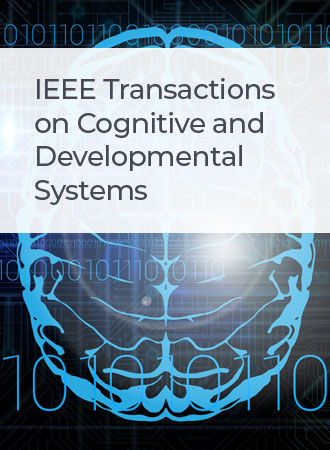GLADA: Global and Local Associative Domain Adaptation for EEG-Based Emotion Recognition
IF 4.9
3区 计算机科学
Q1 COMPUTER SCIENCE, ARTIFICIAL INTELLIGENCE
IEEE Transactions on Cognitive and Developmental Systems
Pub Date : 2024-07-23
DOI:10.1109/TCDS.2024.3432752
引用次数: 0
Abstract
Emotion recognition based on electroencephalography (EEG) has significant advantages in terms of reliability and accuracy. However, individual differences in EEG limit the ability of sentiment classifiers to generalize across subjects. Furthermore, due to the nonstationarity of EEG, subject signals can vary with time, an important challenge for temporal emotion recognition. Several emotion recognition methods have been developed that consider the alignment of conditional distributions, but do not balance the weights of conditional and marginal distributions. In this article, we propose a novel approach to generalize emotion recognition models across individuals and time, i.e., global and local associative domain adaptation (GLADA). The proposed method consists of three parts: 1) deep neural networks are used to extract deep features from emotional EEG data; 2) considering that marginal and conditional distributions between domains can contribute to adaptation differently, a method that combines coarse-grained adversarial adaptation and fine-grained adversarial adaptation is used to narrow the domain distance of the joint distribution in the EEG data between subjects (i.e., reduce intersubject variability), and the weights of the marginal and conditional distributions are automatically balanced using dynamic balancing factors; and 3) domain adaptation is used to accelerate model convergence. Using GLADA, subject-independent EEG emotion recognition is improved by reducing the influence of the subject’s personal information on EEG emotion. Experimental results demonstrate that the GLADA model effectively addresses the domain transfer problem, resulting in improved performance across multiple EEG emotion recognition tasks.GLADA:基于脑电图的情绪识别的全局和局部关联域自适应
基于脑电图(EEG)的情绪识别在可靠性和准确性方面具有显著的优势。然而,脑电图的个体差异限制了情感分类器跨对象的泛化能力。此外,由于脑电的非平稳性,受试者信号会随时间变化,这对时间情感识别是一个重要的挑战。已经开发了几种考虑条件分布对齐的情感识别方法,但没有平衡条件分布和边缘分布的权重。在本文中,我们提出了一种新的方法来泛化跨个体和时间的情绪识别模型,即全局和局部关联域适应(GLADA)。该方法由三部分组成:1)利用深度神经网络对情绪脑电数据进行深度特征提取;2)考虑到域间边缘和条件分布对自适应的贡献不同,采用粗粒度对抗自适应和细粒度对抗自适应相结合的方法,缩小脑电数据联合分布的域距离(即减小主体间变异性),并利用动态平衡因子自动平衡边缘和条件分布的权重;3)采用域自适应加速模型收敛。利用GLADA,通过降低被试个人信息对EEG情绪的影响,提高了独立于被试的EEG情绪识别能力。实验结果表明,GLADA模型有效地解决了领域转移问题,提高了跨多个EEG情绪识别任务的性能。
本文章由计算机程序翻译,如有差异,请以英文原文为准。
求助全文
约1分钟内获得全文
求助全文
来源期刊

IEEE Transactions on Cognitive and Developmental Systems
Computer Science-Software
CiteScore
7.20
自引率
10.00%
发文量
170
期刊介绍:
The IEEE Transactions on Cognitive and Developmental Systems (TCDS) focuses on advances in the study of development and cognition in natural (humans, animals) and artificial (robots, agents) systems. It welcomes contributions from multiple related disciplines including cognitive systems, cognitive robotics, developmental and epigenetic robotics, autonomous and evolutionary robotics, social structures, multi-agent and artificial life systems, computational neuroscience, and developmental psychology. Articles on theoretical, computational, application-oriented, and experimental studies as well as reviews in these areas are considered.
 求助内容:
求助内容: 应助结果提醒方式:
应助结果提醒方式:


